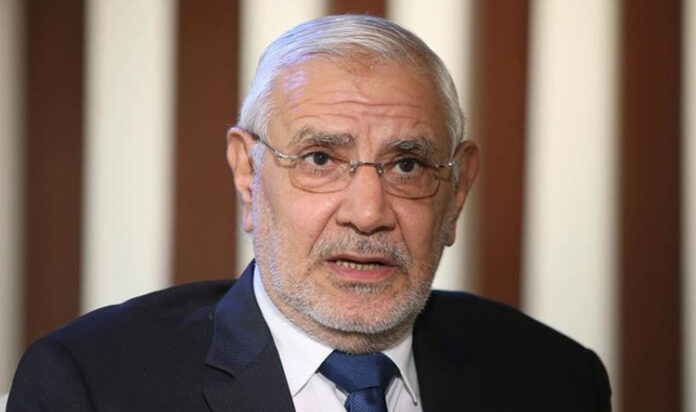UN experts have expressed grave concern about the poor health of the Strong Egypt Party leader and former presidential candidate Abdel Moneim Aboul Fotouh, because of his detention conditions.
The experts sent a note to the Egyptian authorities regarding his health status on November 12, 2021, and it has not yet been answered.
Aboul Fotouh was arrested on February 14, 2018, along with six members of the Political Bureau of the Strong Egypt Party. On his conditions of detention, the experts said that Aboul Fotouh is being held in isolation, without adequate access to sunlight or fresh air. He has no access to the prison library, the mosque, or any outdoor space and is only allowed to communicate with the guards. He was also deprived of books, newspapers, magazines, television, and radio.
Aboul Fotouh is only allowed one 20-minute visit per month from an immediate family member and allowed written contact with his family once a week. Communication with his lawyers is severely restricted and constantly monitored, and they have never been allowed a private meeting together. On July 24, 2021, Aboul Fotouh suffered a heart attack in the middle of the night. The prison guard tried to get medical help but received no response.
Aboul Fotouh urgently needs a cardiovascular examination and close monitoring in an appropriate medical environment. He also suffers from advanced prostate disease, which requires urgent surgery, in addition to other diseases. Aboul Fotouh’s family often suggested covering the expenses of any required medical services, but the authorities would not allow it.
The experts called on the Egyptian authorities to provide updated and detailed information on the current state of Aboul Fotouh’s health, and to clarify the measures that have been taken, or planned, to protect his life and preserve his health and safety. The experts also called on Egypt to clarify whether Aboul Fotouh’s detention, considering his health condition, complies with its international human rights obligations.









